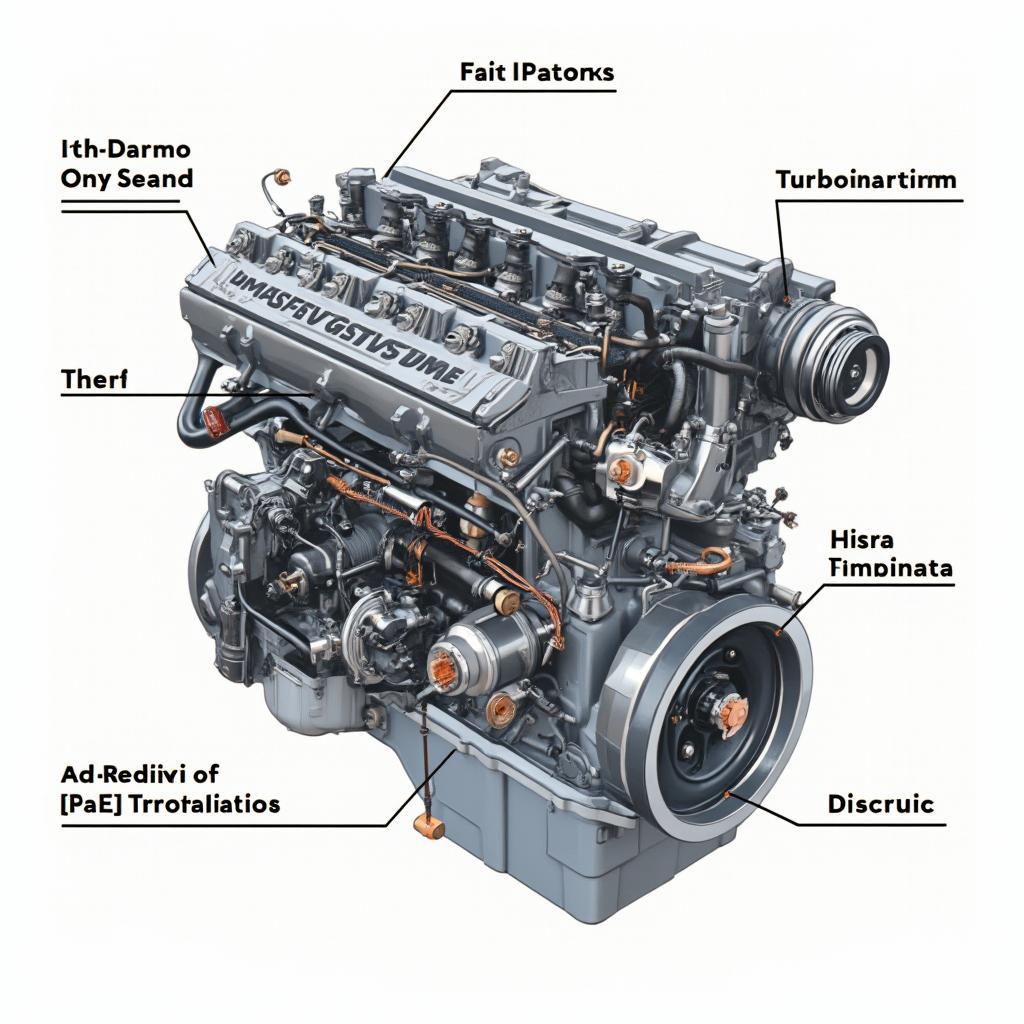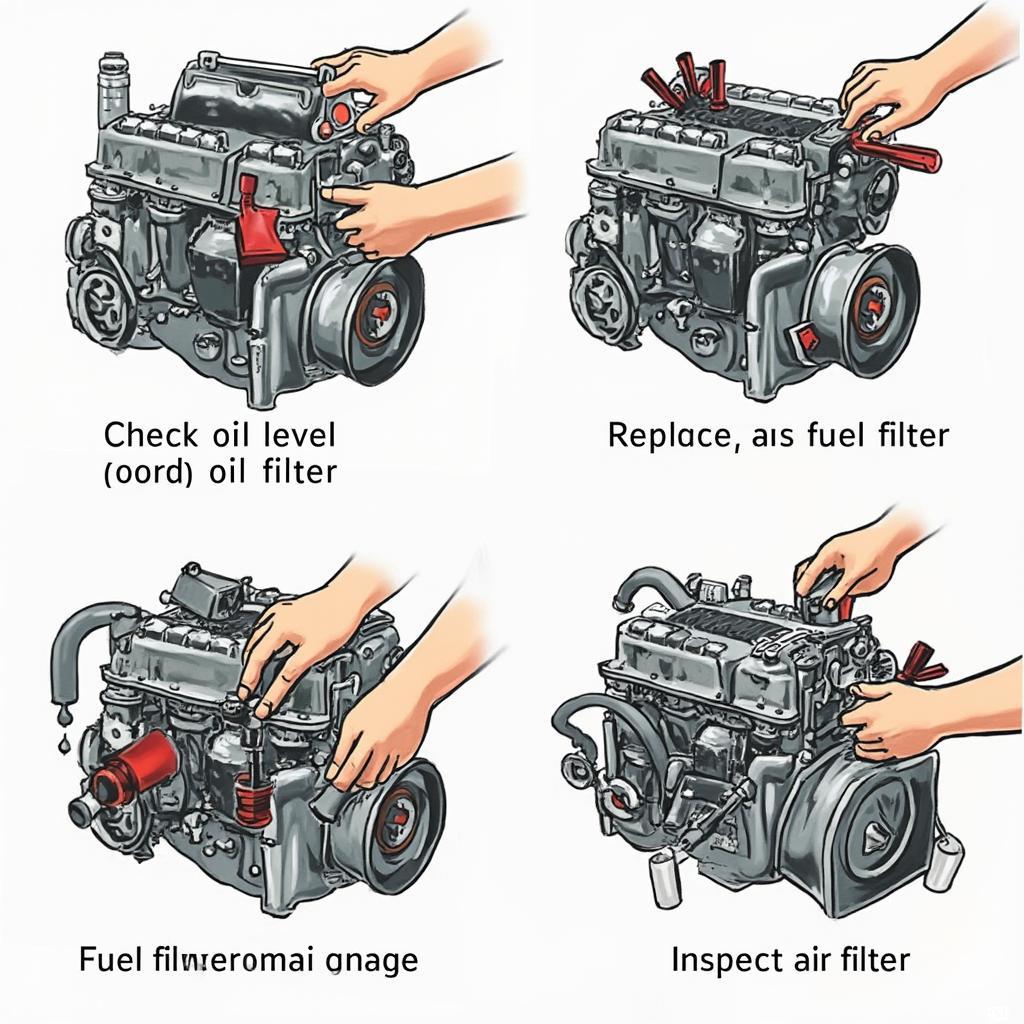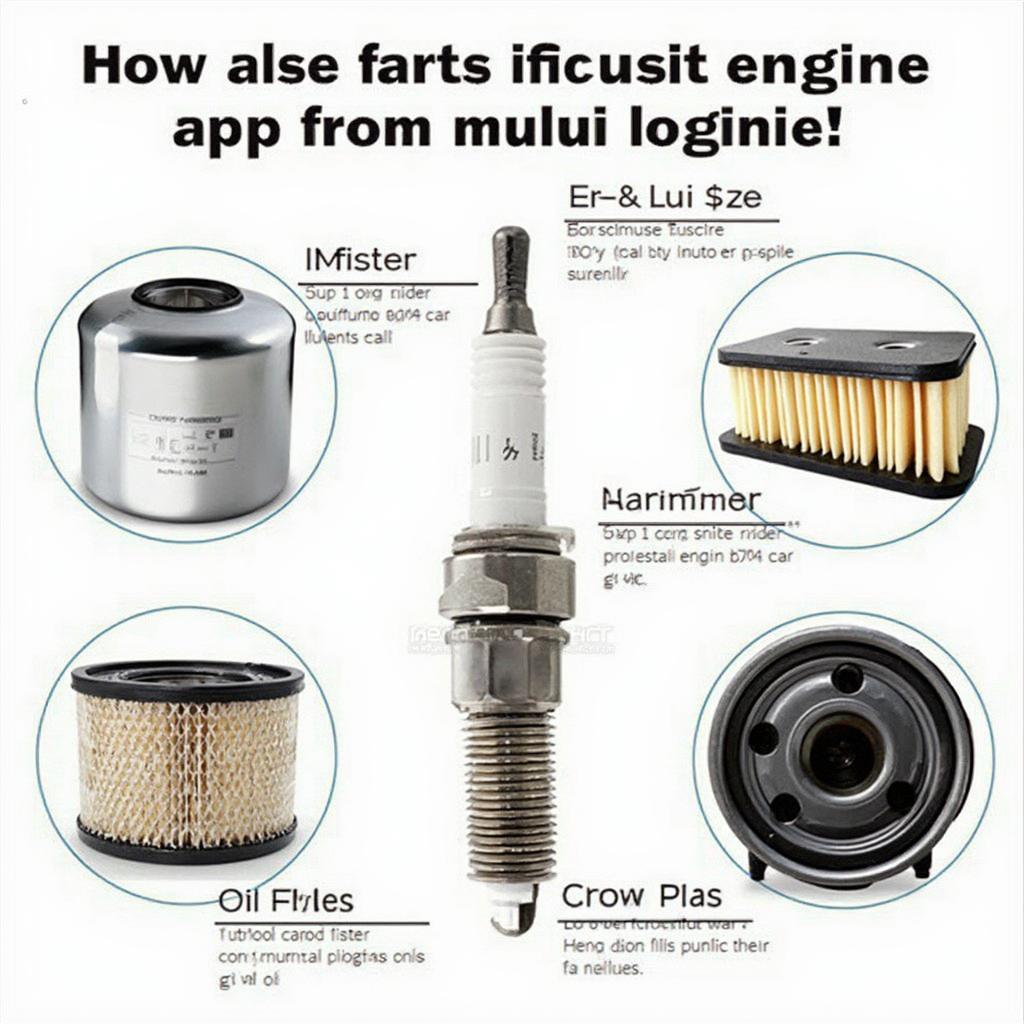Your cart is currently empty!

Tips to Care for a Diesel Engine
Diesel engines are known for their durability and fuel efficiency, but they require specific care to maintain optimal performance and longevity. Proper maintenance can save you significant money on repairs down the line and keep your diesel engine running smoothly for years to come. This comprehensive guide offers essential Tips To Care For A Diesel Engine, covering everything from regular maintenance to addressing potential issues.
Understanding Your Diesel Engine’s Needs
Unlike gasoline engines, diesel engines rely on compression ignition, meaning they don’t use spark plugs. This difference necessitates a unique approach to maintenance. Understanding the specific needs of your diesel engine is the first step towards providing proper care. One key aspect is the importance of using the correct type of oil. Diesel engines operate under higher pressures and temperatures than their gasoline counterparts, requiring specialized oil formulations to withstand these conditions. Another critical factor is keeping the fuel system clean. Contaminants in diesel fuel can clog injectors and damage other components, leading to reduced performance and costly repairs.
 Diesel Engine Components Diagram
Diesel Engine Components Diagram
Essential Diesel Engine Care Tips
Regular maintenance is the cornerstone of keeping your diesel engine in top condition. Here are some essential tips to follow:
- Regular Oil Changes: Change your oil and filter according to the manufacturer’s recommended intervals. Using high-quality diesel-specific oil is crucial for protecting your engine’s internal components. Don’t be tempted to stretch oil change intervals, as this can lead to premature wear and tear.
- Fuel Filter Replacement: A clean fuel system is vital for optimal performance. Replace your fuel filter regularly, as specified in your owner’s manual. This will prevent contaminants from reaching your injectors and causing damage.
- Air Filter Maintenance: Ensure your air filter is clean and replaced regularly. A clean air filter allows for proper airflow, contributing to efficient combustion and preventing excessive soot buildup. Similar to driving tips for new diesel cars, regular air filter maintenance is vital for new diesel vehicles.
- Coolant System Checks: Regularly check your coolant levels and ensure the system is functioning correctly. A properly functioning cooling system prevents overheating, which can cause significant engine damage.
Addressing Common Diesel Engine Problems
Even with meticulous maintenance, diesel engines can encounter issues. Here’s how to address some common problems:
- Black Smoke: Black smoke from the exhaust usually indicates incomplete combustion, often caused by a dirty air filter, clogged fuel injectors, or a faulty fuel pump. dirty exhaust tips on new car discusses common causes of dirty exhaust tips in new cars, which can also apply to diesel engines. Addressing these issues promptly can prevent further damage and improve fuel efficiency.
- Hard Starting: Difficulty starting a diesel engine can be attributed to several factors, including glow plug issues, low fuel pressure, or a failing battery. rc car glow plug tips provides information about glow plugs although in a different context, the basic principles remain the same. Diagnosing and fixing the underlying cause is essential for reliable starting.
- Loss of Power: If your diesel engine feels sluggish, potential culprits include a clogged fuel filter, a faulty turbocharger, or a problem with the exhaust gas recirculation (EGR) system. Addressing these issues promptly can restore your engine’s performance.
 Regular Diesel Engine Maintenance
Regular Diesel Engine Maintenance
Expert Advice for Diesel Engine Longevity
“Regular maintenance, including using the correct fluids and filters, is paramount to extending the life of your diesel engine,” says John Miller, a certified diesel mechanic with 20 years of experience. “Don’t underestimate the importance of addressing minor issues promptly before they escalate into major problems.”
The Importance of Using Quality Parts
Using high-quality parts and fluids is crucial for maintaining the performance and longevity of your diesel engine. “Investing in quality parts might seem expensive upfront, but it saves you money in the long run by preventing premature wear and tear,” adds Sarah Chen, a mechanical engineer specializing in diesel engine technology. “Cheap parts often fail sooner, leading to more frequent repairs and potentially more extensive damage.”
 High-Quality Diesel Engine Parts
High-Quality Diesel Engine Parts
Conclusion
Tips to care for a diesel engine involve a combination of regular maintenance and addressing potential issues promptly. By following the advice outlined in this guide and prioritizing preventative care, you can ensure your diesel engine remains reliable, efficient, and performs at its best for years to come. Further, diesel engine care tips offers a comprehensive resource for diesel engine owners.
FAQ
- How often should I change the oil in my diesel engine?
- What are the signs of a clogged fuel filter?
- Why is it important to use diesel-specific oil?
- How can I prevent black smoke from my diesel exhaust?
- What are the common causes of hard starting in a diesel engine?
- What should I do if my diesel engine loses power?
- How do I know if my air filter needs replacing?
For further assistance, please contact WhatsApp: +1(641)206-8880, Email: [email protected] Or visit us at 456 Pine Avenue, Toronto, ON M5V 2J4, Canada. We have a 24/7 customer support team.
Also, you can find additional resources on our website: tip career center portal.

Leave a Reply